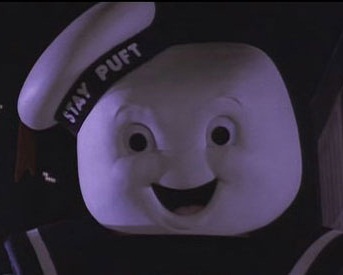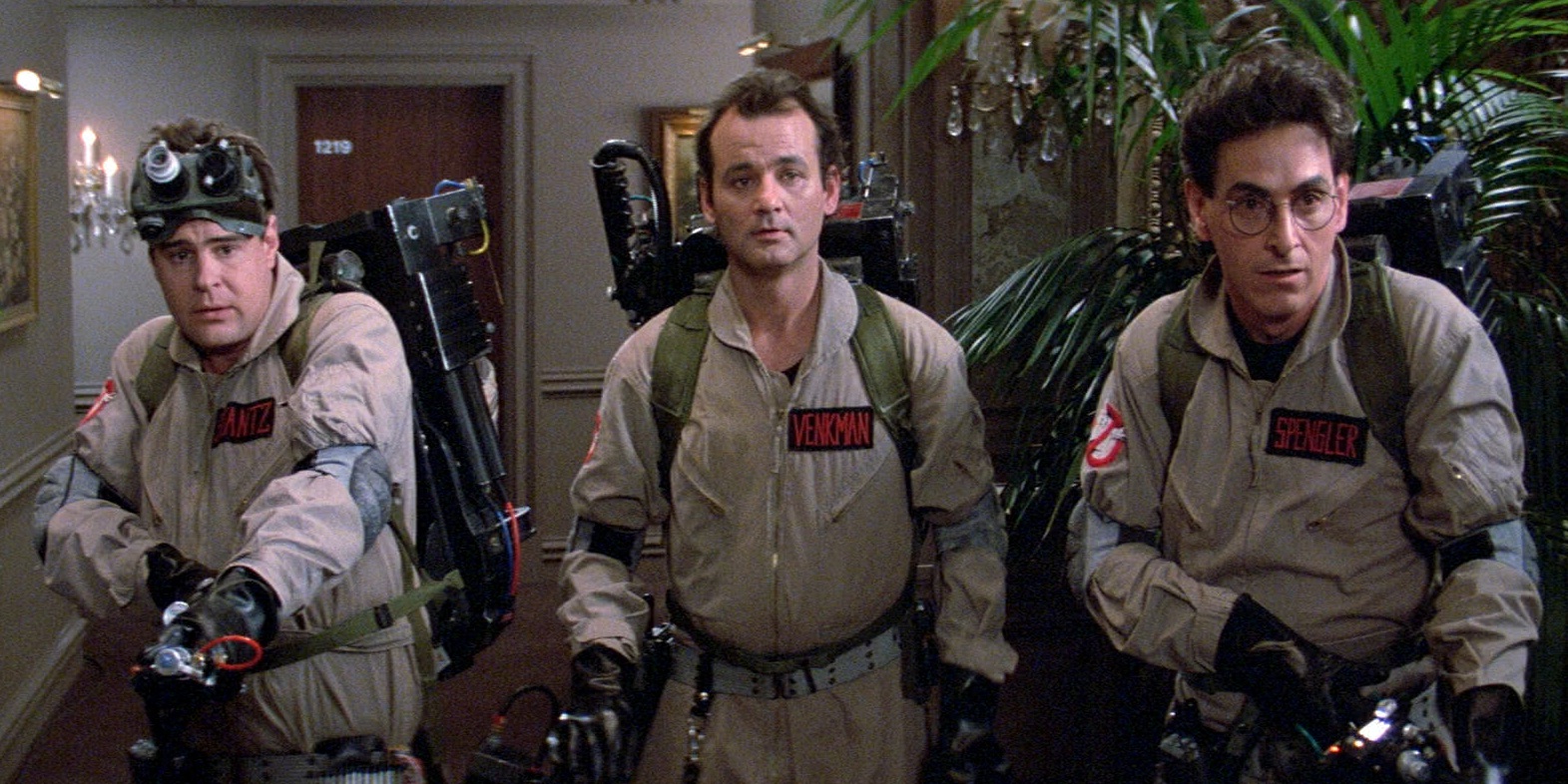 There’s nothing quite like revisiting your favorite films on a random afternoon, but that activity takes on a special added weight when said movie manages to turn up in current film blog news. For example, one of my all time favorite comedies, Ghostbusters, was just added to Netflix’s Watch Instantly service. While giving it another spin on this idle Tuesday, I couldn’t help but think about the on-again/off-again plans to extend the franchise. As I watched, something struck me that made me wonder if the prospect of a third Ghostbusters film is doomed even with all principals on board. But first, a little info on the movie for those unaware.
There’s nothing quite like revisiting your favorite films on a random afternoon, but that activity takes on a special added weight when said movie manages to turn up in current film blog news. For example, one of my all time favorite comedies, Ghostbusters, was just added to Netflix’s Watch Instantly service. While giving it another spin on this idle Tuesday, I couldn’t help but think about the on-again/off-again plans to extend the franchise. As I watched, something struck me that made me wonder if the prospect of a third Ghostbusters film is doomed even with all principals on board. But first, a little info on the movie for those unaware.
Who Made It: Ghostbusters is one of the brightest feathers in the career cap of director Ivan Reitman. Reitman also gave us such comedic gems as Stripes, Dave, and (cough) Kindergarten Cop (cough). This time around Reitman was working from a script penned by three of the film’s performers: Harold Ramis, Dan Aykroyd, and, though uncredited, Rick Moranis.
Who’s In It: The titular busters of ghosts are played by Bill Murray, Dan Aykroyd, Harold Ramis, and Ernie Hudson. Sigourney Weaver co-stars as the lovely Dana Barrett, the love interest of Murray’s Peter Venkman and the catalyst for the supernatural events of the film. Providing plenty of comic relief (in this comedy?) is the perpetually nerdy Rick Moranis as hapless dweeb Louis Tully. While Murray and Aykroyd are legendary alumni of Saturday Night Live, Ramis and Moranis are veterans of the lesser known, but equally hilarious SCTV.
What’s It About: A group of upstart paranormal investigators decide to venture in the additional, and recently invented, realm of spectral elimination. They find themselves in over their heads when they tangle with a resurrected Sumerian god who manifests their doom into the form of a giant marshmallow man. Laugh, cheer, repeat.
Why They Shouldn’t Do Another Sequel:
I’m by no means the first to ponder and muse upon the possibility of a third Ghostbusters. As soon as the rumor mill churned out whispers that the original cast was even flirting with the idea, the Internet exploded into torrent of speculation and supposition. But it wasn’t until this recent revisit, and subsequent viewing of Ghostbusters 2, that my thoughts on the matter finally solidified. They can examine the conceit of the old guard training a younger generation of busters until they are blue in the face, but Ghostbusters 3 should not happen.
Basically, it’s a question of economics. I’m not talking about petty salary squabbles between returning performers and the studio; I’m referring to one of the fundamental appeals of the first film. Sure, it’s fun to watch a towering monster made of campfire treats crush cop cars under his terrifyingly fluffy feet, and yes, the dialogue is as snappy as an angry crab, but that’s not what makes us love these characters. The core of the film is a story about three blue-collar guys who lose their jobs and are forced to strike out into an entrepreneurial enterprise. Ok, maybe scientists don’t typify blue-collar, but they still seem like pretty regular Joes and we can easily relate to them. We root for them as they struggle to find their footing financially and fight valiantly against their own inexperience and hilarious ineptitude. But by the end, they are established, successful, and proven able to handle any supernatural foe. But then in Ghostbusters 2, they are once again broke, struggling to find work, and considered an utter laughing stock. The reason Ghostbusters 2 feels like such a flat, tiresome carbon copy of part one is that they force them to climb the same ladders of public opinion and fiscal solvency; an acknowledgement of the necessary formula.

So the way I see it, they have two choices for the threequel. They can either avoid this repetitive rut by allowing the guys to be well off and their business flourishing, or once again force them to claw their way up from the bottom. The latter approach has the advantage of returning our heroes to the position in which we most relate to them. It also makes sense given the similarities between the current financial crisis, from which we are still working to crawl out, the woeful unemployment rates in the mid-’80s. However, watching the guys have to go through all that yet again will only make for further agonizing repetition. So let’s say we try the former route, wherein the “busting” industry experiences record growth. The problem there is that, logically, more the Ghostbusters are able to ply their trade, the more supernatural occurrences will therefore have become commonplace in their city; making their line of work far less interesting and far less entertaining than it was in the first film.
Basically what I’m saying is that the self-made small business model so aptly lampooned in Ghostbusters creates a damned-if-they-do/damned-if-they-don’t conundrum that poisons the proposed additional sequel from the root upward. But what happen if they are thrust into another dimension where our economic systems bear no relevance? Ok, time to crack open the Necronomiconomy and Paganomics textbooks, we’ve got a new angle to explore.
More:
Dan Aykroyd: Bill Murray Won’t Be in Ghostbusters III
Dan Aykroyd: Ghostbusters 3 to Start Shooting in 2012


